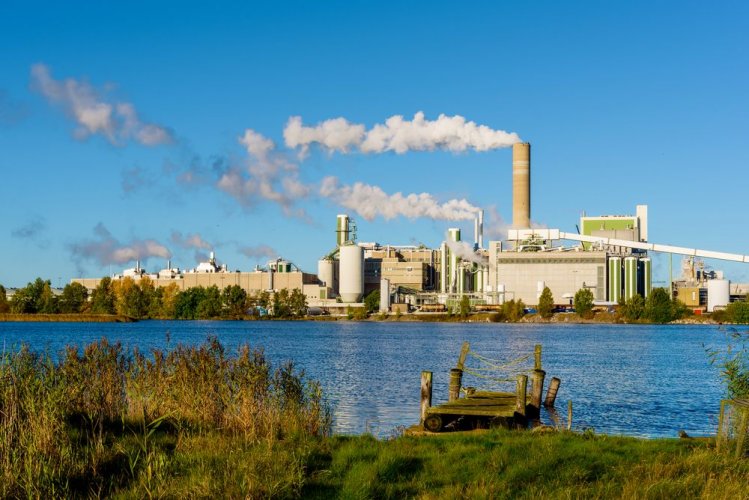The EBA criticized draft law No. 7327 on the state environmental monitoring system for the alleged transfer of responsibilities for state environmental monitoring to business.
Experts believe that the draft law contains provisions that do not correspond to the European approach to state environmental monitoring, reports EBA.
On July 8, the Verkhovna Rada (VRU) did not support the document, sending it for revision for a second first reading. And already on July 28, the VRU Committee on Environment approved the new version which has practically not undergone any changes.
- In accordance with European directives, issues of provision, publication and updating of environmental information are dealt with, first of all, by state authorities of various levels, individuals and legal entities that perform public administration functions in accordance with current legislation.
Enterprises can be involved in collecting environmental information that they possess within the framework of their activities and provide it in aggregated form on a periodic basis or upon request. These can be data on discharges into water bodies, emissions of pollutants into the air, generation and management of waste, etc.
Business already submits such information to various authorities in the form of reports.
However, draft law No. 7327 obliges all enterprises to monitor the state of the environment or its components on an ongoing basis. Subsequently, such information may be determined as an information need to ensure management in the field of environmental protection and transferred free of charge to the Ministry of the Environment.
"Information needs, as interpreted by the draft law, are the basis for the formation and functioning of the state environmental monitoring system and its subsystems, as well as the implementation of state statistical activities. Therefore, it is not without reason that there are fears that environmental monitoring functions, which should be performed by the state," the article says.
- According to the current legislation, financing of the state environmental monitoring system and its subsystems is carried out at the expense of state and local budgets.
In 2021, the Cabinet of Ministers approved the State Targeted Environmental Program for technical re-equipment of the hydrometeorological service in the amount of 308.6 million hryvnias from the state budget, within the framework of which, in 2022-2024, atmospheric air monitoring stations should be automated. Taxes and payments of enterprises make up a significant share of such revenues, that is, business de facto already contributes to monitoring. Eco-tax funds can also be spent on environmental monitoring needs.
For 2017-2021, business paid 27 billion hryvnias of eco-taxes to the budgets of various levels, but modern automated atmospheric air monitoring systems were installed with state funds only in the Kyiv and Dnipropetrovsk regions.
"Therefore, it would be expedient to establish the financing of the state environmental monitoring system, taking into account the possibilities already provided for this," the EBA noted.
- Monitoring the state of the environment on an ongoing basis requires significant additional resources and costs.
Thus, the cost of one atmospheric air monitoring post with an automated system for collecting and transmitting environmental data starts at 5.6 million hryvnias at the current exchange rate. However, they are not manufactured in Ukraine and must be imported, which can make the price even higher.
In addition, the monitoring of other components of the environment also requires the involvement of relevant specialists, which can significantly affect the financial condition of enterprises. Thus, additional pressure is created on enterprises and interference in their economic activity.
Other inconsistencies with the European approach to state environmental monitoring:
- Empowering the State Environmental Inspection to use information from the state environmental monitoring system for prompt response to threats or events that may have a negative impact on the environment. This may create additional prerequisites for conducting "preventive" inspections of enterprises.
- Expanding the scope of inspections of the State Geotechnical Inspection to cover the protection and use of subsoil, which actually duplicates the current powers of the State Geodesy.
- The ban on classifying environmental information as confidential, which contradicts both the Aarhus Convention and current national legislation, which guarantees enterprises the right to refuse to provide information that may constitute a commercial secret or contain a component of intellectual property, and affect the protection of their economic interests.
The coordinator of the Committee for Industrial Ecology and Sustainable Development, Olga Boyko, noted that during the almost 6 months of war, business is making considerable efforts to support the country's economy. As of the beginning of August, enterprises financed the budget the most - by UAH 444.7 billion, without taking into account the voluntary support of the military from the Armed Forces of Ukraine and the Russian Federation, medical institutions, internally displaced persons, etc.
"Business believes in Ukraine, in our victory, and is already preparing investment projects for post-war recovery. And at the same time, he hopes for constructive cooperation with state bodies in terms of deregulation and joint efforts in creating favorable conditions for increasing the investment attractiveness of Ukraine as a candidate for EU membership. Such conditions include, in particular, a balanced approach to the distribution of obligations in the field of environmental protection," she said.
In the EBA urged the developers to finalize draft law No. 7327 in accordance with the proposals of the business community in order to create a document that would help transparent business to continue working.
Earlier, EcoPolitic wrote, that in Ukraine, from the numerous government initiatives regarding the deregulation of business in the field of environmental protection, adopted during martial law, only two actually work.
As EcoPolitic previously reported, almost half of the business works with limitations, caused by the russian invasion.





